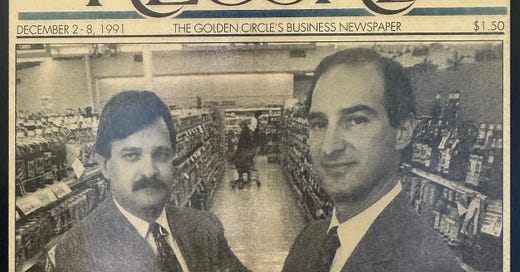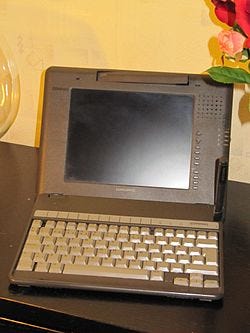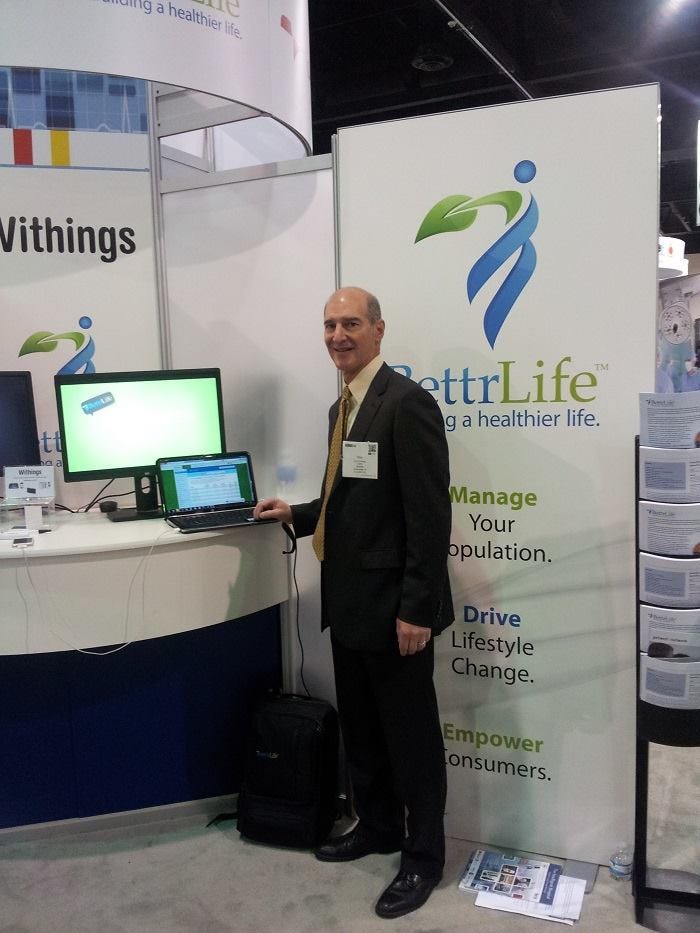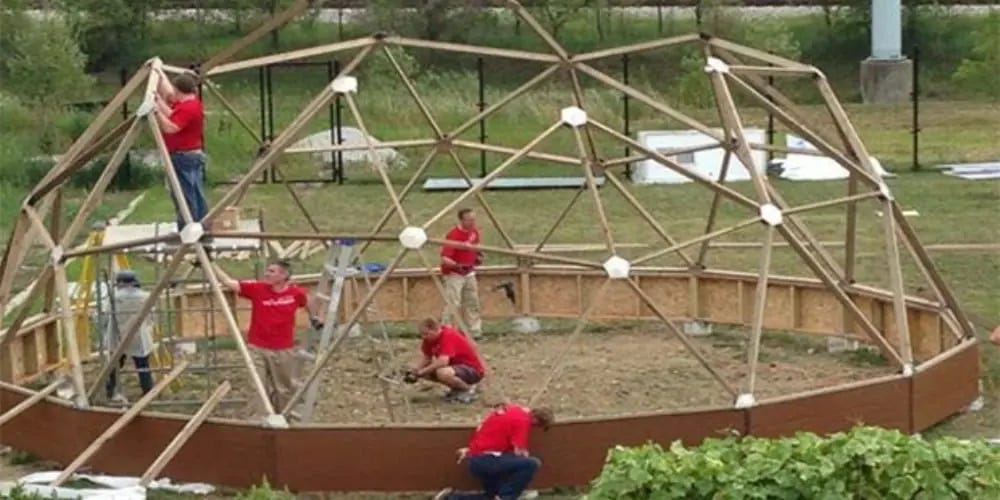A true trait of serial entrepreneurs was once best described by the late British Prime Minister, Margaret Thatcher:
being powerful is like being a lady. If you have to tell people you are, you aren’t
I recently spoke with someone who was a serial entrepreneur, but they didn’t utter the words serial or entrepreneur in the 90+ minutes we talked. Yet, the businesses and opportunities we spoke of bore clear signs of a perpetually entrepreneurial machine at work. A chain of successes and failures, profitable and super profitable exits revealed themselves without hints of outward pride or ego. I had so much fun with this interview and research that I almost split this story into three separate parts. I hope you enjoy reading it as much as I enjoyed learning and writing.
The common thread across the four businesses spanning nearly 4 decades is being early to the market - two toward a successful outcome, one not so much, and a fourth whose engines are ready for takeoff.
Starting in the middle
A chronologically structured story often visualizes the progression of an entrepreneurial journey, but I feel that this story is better told from the middle - in 1994. Don Schoen was on a flight to Seattle shortly after the sale of his first business when an opportunity presented itself from a seatmate’s tray-table.
Don was seated beside Scott Leum whom he observed programming on a Compaq Concierto Slate. Though tablets such as iPads are commonplace today, this particular tablet/laptop combo, released in 1993, was still somewhat unique in 1995 (In fact a 1997 Des Moines Register article has the duo describing the device as a combination Etch-a-Sketch and clipboard!). Don observed Scott programming on this tablet and struck up a conversation. Scott, then a 4th year podiatry student, explained what he was working on and Don, a trained speech pathologist and audiologist with a background in supermarkets, recognized an innovative opportunity.
He invested $50K from a prior exit (Retail Management Systems, an inventory management system for supermarkets) and the two forged a partnership to launch in 1996. Scott continued writing the software in Visual Basic and Don assumed sales. The initial product, PodNotes, focused on basic examination documentation and is clearly a early precursor to the Electronic Health Records (EHR) today. The original company, launched in a small 10x10 office to digitize SOAP notes that captured Subjective information from the patient, Objective data such as vitals, Assessment by the physician, and Plan of addressing the problem at hand.
Though like minds were addressing similar opportunities nationwide, with EPIC beginning to address EHRs for major hospital systems, specialized EHRs for prisons, and clinicians of all disciplines, Don and Scott focused their initial energy on podiatry and then evolved MediNotes into serving 14 separate specialties, along with Internet medicine. The system developed innovations that provided physicians with the ability to create linked (hypertext) information, autocomplete sentences based on predictive selections (similar to autocorrect), picture-based data (such as pointing and clicking on images of human anatomy to note problems), and information on drug interactions.
Software licenses initially cost $695 but evolved to start started at $2000 and expanded upward. Don and Scott advanced the product capabilities and expanded the user base one clinic, one doctor, one trade show at a time.
In those intervening twelve years, Don guided the company through growth and change. Davin Hill joined the company early and helped allay Year 2000 challenges and migrate the original Visual Basic codebase to the C language. They also rewrote the software to be universally adaptable and grew across additional practices.
Dr. Scott Leum left the company in 2000, when it had 10 employees. Don bought the majority of the company in 2000 and then expanded the staff to over 140 by 2008. The company had expanded to over 5000 ambulatory clinics, serving single-person clinics to physician cardiology clinics.
Scott founded other startup companies, a few of which he also exited successfully. He would go on to sell one of his companies to Trek.
The Technology Association of Iowa, recognizing MediNotes’ impact, awarded the company with an “Economic Impact Award” in 2006 and the “Technology Company of the Year” in 2007.
The era of EHR growth and acquisitions
Don, MediNotes’ CEO since 2000had maintained a connection to companies leading the patient management system landscape and was the President of the Electronic Health Record (EHR) Association, a part of HIMMS in 2007. He’d envisioned and structured the company to remain attractive to leaders in the space. President Obama had been campaigning at this time on his message of healthcare reform and growth in EHRs was imminent.
Yet, the future turned out differently from what was planned. Cerner, one of the most prominent association members, decided to build its own EHR after licensing MediNotes for three years. McKesson, another leading player chose to acquire a competitor, and Medisoft, a third company doing licensing MediNotes was acquired. Each acquisition narrowed the field of opportunity because clinics and doctors were actively seeking single systems (e.g. EHR and Accounting software).
Alerted to a fast-moving (but not yet profitable) potential competitor, Bond Technologies of Tampa, FL, MediNotes moved quickly and acquired the company in Q1 2008. By now, MediNotes had nearly 20 investors on its capitalization table and included Farm Bureau. Dave Sengpiel, representing Farm Bureau was instrumental in the acquisition on a compressed timeline.
The growing MediNotes was soon acquired in 2008 by Eclipsys of Atlanta, GA for $45 million in cash and stock. This marriage, however, would be short-lived as, just six months later, Allscripts sought out and acquired Eclipsys. The portfolio of MediNotes, MediNotes Clinician (from Bond Technologies) and all other software offerings were sunset over the next four years. The nation’s focus on medical technology innovations seemed to have set aside significant market disruptions of the 2008 financial crisis and innovators and innovations were in transition.
Humble(r) beginnings
Don grew up in Evanston, IL and now resides in the Des Moines metro where much of his entrepreneurial adventures and investments remain focused. He attended the University of Iowa for two years, returning to Northwestern in Evanston for his undergraduate degree and Michigan State University for his Master’s in Communication Disorders in 1975.
He and the late Madelyn (Maddie) Schoen married shortly after graduation and moved first to Michigan for graduate studies. Life and work took them to Arizona where he began working as an audiologist. Life and a desire for larger challenges called them back to Des Moines, where Maddie’s parents owned the Sherman’s Supervalu and Fairgrounds Supervalu stores.
Working at Supervalu helped in more ways than previously imagined. Super Value wholesaler offered business education opportunities as Don learned the grocery business. As readers may recall from the March 2025 Norand Story, this was a time of disruptive innovations in grocery and retail, and Don’s curiosity led him to learn deeply.
Recognizing an opportunity
In a trait that would be repeated multiple times across his career, Don spotted an opportunity. There was a clear gap in inventory management grocery stores. Vendors were introducing products and special prices at a breathtaking pace. Managing prices, sale arbitrage, coupons, thousands of SKUs and dozens of vendors exposed the opportunity for innovation.
in 1984, Don was joined by Bob Boswell to build software for supermarkets. Named Retail Management System (RMS), the software heavily leveraged the new personal computer technology rapidly morphing with increased storage and processing power. This in-turn helped supermarket owners realize the benefits of automation and increase real gross profit margins. Their focus on the grocery supermarkets helped them win contracts with marquee brands of the time such as Ralphs of Los Angeles, Dominick’s of Chicago and Giant Foods of Landover, MD.
Some of my hypotheses for creating this series on Substack were to test the existence of connections between startups across decades, diaspora from a successful exit resulting in launches of more entrepreneurs, and a perpetual ecosystem of funding. Despite prevailing belief, each new story affirms that Iowa DOES have a longitudinal history of entrepreneurship, money has flowed from one exit to the next, entrepreneurs have been born with each exit, and connections are more than dotted lines - they’re often solid pathways.
Don, seeking mechanisms to improve his software, realized the value a handheld computer would bring to a supermarket. As inventory isn’t restricted to the desk(s) in an office so the hunt for a handheld computer was on. Don connected with Cedar Rapids-based NORAND’s George Chadima. NORAND, as told in the March 2025 story, had developed wireless handheld computers. These devices were perfectly positioned as were those from Telxon Corporation of Akron, OH. Don chose not to pick favorites and didn’t sign exclusive contracts, allowing the handheld providers to compete based on their features, capabilities, and cost.
Telxon recognized the opportunity that a fast-expanding software company could provide for its hardware business. Though Marc Andreesen’s proclamation that ‘software is eating the world’ was nearly 20 years away, Telxon must have seen Microsoft’s market gains in releasing MSDOS less than a decade earlier eclipsing the PC hardware, repeating its victory from 1973 in releasing the BASIC language compiler, and then eclipsing the Altair computer. Telxon bought RMS in 1992. Don was 40.
Time for a hat-trick?
Don had built and sold Retail Management System between 1984 and 1992, a success he would repeat with MediNotes in the subsequent 14-years. Now 56 and with a sharper ability to look ahead at the new and changing landscape in 2012, he began thinking of the next venture.
Opportunity presented itself in the space of health and wellness that Don had always advocated.
The mobile app revolution was gaining momentum over the web-first approach to applications and Dan Buettner’s bestseller was exposing masses to the simpler approach to health via nutrition, movement, and lifestyle in the early 2010s. Bettrlife, a mobile solution was born. Davin Hill joined Don in the new venture and a group of business and healthcare professionals joined its advisory board.
Bettrlife pulled recipes, ingredient analysis, ingredient substitution, food logging, managing groups up people, working plans, meal plans and disease management into a single application. It launched in 2015 and began to gain momentum via traditional sales as well as via social platforms. It connected users to health coaches and participating providers and was compliant with the HIPPA laws on patient privacy.
Although mobile health was gaining steam, it appears Bettrlife was about 5 years too early to the market. It also showed that unlike Medinotes and Retail Management System, both business-to-business companies, Bettrlife’s business-to-consumer market exposed a new set of variables. Not only was it imperative to build a product that addressed today’s consumer need but also to keep moving quickly with the rapidly shifting industry.
The team realized the uphill climb was going to be steep against a market now flooded with competitors and imitators. They made the difficult decision to shutter Bettrlife in 2018
A new endeavor
Don is excited about the work underway at Central Iowa Shelter and Services (CISS), originally inspired by his son (a committed entrepreneur himself) Justin Schoen.
Justin had volunteered at CISS and found passion in service for the Des Moines organization. As board chair, he’d worked closely with Melissa O’Neil, CISS’s CEO since 2016. Melissa had an idea to expand upon a 750sq ft greenhouse the organization had operated since 2014, one that would not only produce enough vegetables for CISS to be self-sufficient but also breed Tilapia.
A hydroponic and aquaponic greenhouse had once inspired Don and Maddie Schoen in the Kiev desert in Israel. Melissa’s vision connected Maddie to that original inspiration, and she wanted to find a way to support it. Though she would pass away just three weeks later, the Schoen family became the lead donor in bringing Maddie’s inspiration to life. The shelter now serves healthy salads and vegetables at each lunch and dinner. It further provides purpose and respectful healing to individuals employed from the shelter within the greenhouse.
At full production this will produce 80,000lbs of greens and 6,000lbs of bluegill or similar. In the meantime, the shelter is using proceeds from the sale of fish tacos a newly acquired food truck at farmers markets to further invest in itself toward a self-sufficient future. Gone are the days of day-old foods such as donuts being served to residents, some of whom battle diabetes and other diseases.
Bettrlife may not have made its commercial impact, but through Maddie’s lifelong caring for others as a speech pathologist, her inspiration lives on in spirit at CISS.
Separately, as CISS expanded its impact, it identified a need to reach more people effectively and efficiently with an emphasis on individual self-sufficiency. Under Melissa’s guidance with Don, Davin Hill and dozens of others, CISS, along with the Centene Foundation, has built a mobile app, Bindl, to help support those seeking critical resources.
Bindl is poised to transform into a standalone for-profit entity as shelters across the country recognize its positive impact and seek it for their facilities. As an app that connects case workers, food, housing, health, transportation, housing waitlists and much more, it has a ready market. Don and industry executives serving as the board anticipate a July 2025 spinoff to set the related for-profit entity and Bindl on its new growth path.
Entrepreneurship with a twist.
Final Thoughts
This interview was as reflective as it was celebratory. I was humbled by Don’s multiple decades of experience and investment in the Iowa technology community, some of it noticed and celebrated and others done quietly, without recognition. His roles as developer, investor, builder, employee, entrepreneur, mentor, philanthropist, husband and father have all contributed to the entrepreneurial community. Don had a few final things he discussed, and one of the most important was his recognition of all the people who helped him to be successful. Whether they were loved ones, mentors, partners, or associates, it was their dedication to his vision that enabled him to craft this story.
The title of this story presented itself in parting moments when I asked Don what continued to drive his work after the successes and celebrations. He inadvertently provided me with the title of this story in that parting sentence -
Do what you love. Life is too short
I am a proud member of the Iowa Writers Collaborative and the Iowa Startup Collective. Each writer is independent and publishes via Substack across Iowa.
Sources










What a gem of a tale for the cultural stack! When you start to read about Don’s multiple business starts and exits, it “tricks” one into thinking more into the contrary, that it really can be done. And glad to see how it runs in the family!
Love this, Tej. “Do what you love” isn’t just a nice phrase—love is a far more powerful force than the fear of failure or the need to prove something that can so often grip entrepreneurs. I really appreciated how you highlighted Don’s impact at CISS. Channeling entrepreneurial problem-solving into something so meaningful is the kind of impact that truly matters.